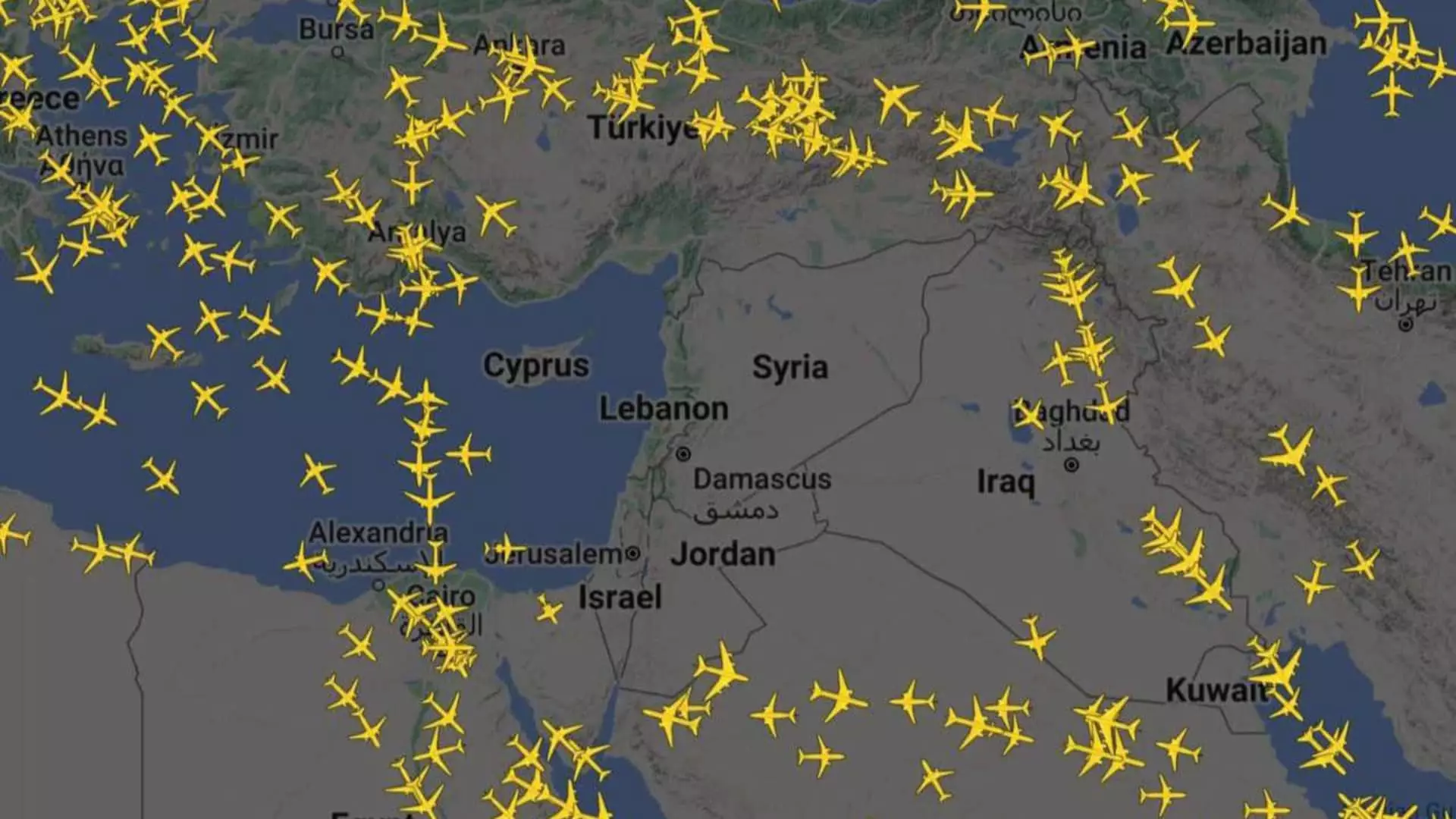On a recent Saturday, multiple countries in the Middle East, including Iran, Jordan, and Iraq, closed their airspace due to security concerns. As a result, United Airlines was forced to cancel its Newark to Tel Aviv flight. This decision came after Israel shut down its airspace, causing a ripple effect on flight operations in the region. United Airlines, the only U.S. carrier that had resumed service to Israel after previous disruptions, emphasized the safety of its customers and crews in light of the evolving situation. In addition to the Tel Aviv flight, United also canceled its service from Washington Dulles International Airport to Amman, Jordan, citing the unrest in the region.
Widespread Flight Diversions and Cancellations
The closure of airspace in the Middle East led to numerous flight diversions and cancellations on Saturday. Flight-tracking site Flightradar24 reported that several flights bound for Tel Aviv and Amman had to change their routes due to the airspace closures. In anticipation of continued disruptions, airlines preemptively canceled services scheduled for Sunday. For example, Israel’s El Al scrapped more than 20 flights, and two flights from Thailand to Israel had to divert to Bangkok. Emirates Airline also canceled its Dubai-Amman flight for Sunday, while Air France and British Airways canceled their services to Israel and Amman, respectively. Even Lufthansa had to cancel its flights to Israel, highlighting the extensive impact of the airspace closures on various airlines.
Uncertainty Surrounding Flight Resumptions
With the situation in the Middle East remaining volatile, airlines are facing uncertainty about when flights can resume to the affected destinations. United Airlines, in particular, is monitoring the developments closely to determine the next steps regarding its operations to Tel Aviv and Amman. Given the fluid nature of the security situation, airlines must prioritize the safety and security of their passengers and crew members. Passengers are advised to stay updated on their flight statuses and follow airlines’ notifications regarding potential delays or cancellations. Ultimately, the airspace closures in the Middle East serve as a stark reminder of the geopolitical challenges that can disrupt air travel operations on a global scale.


Leave a Reply